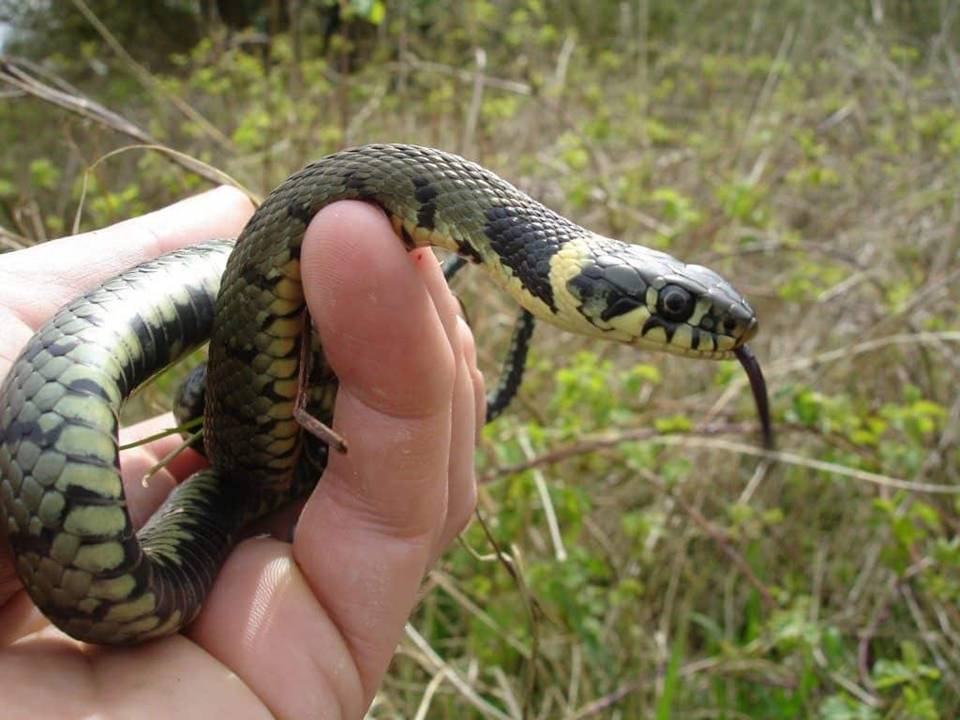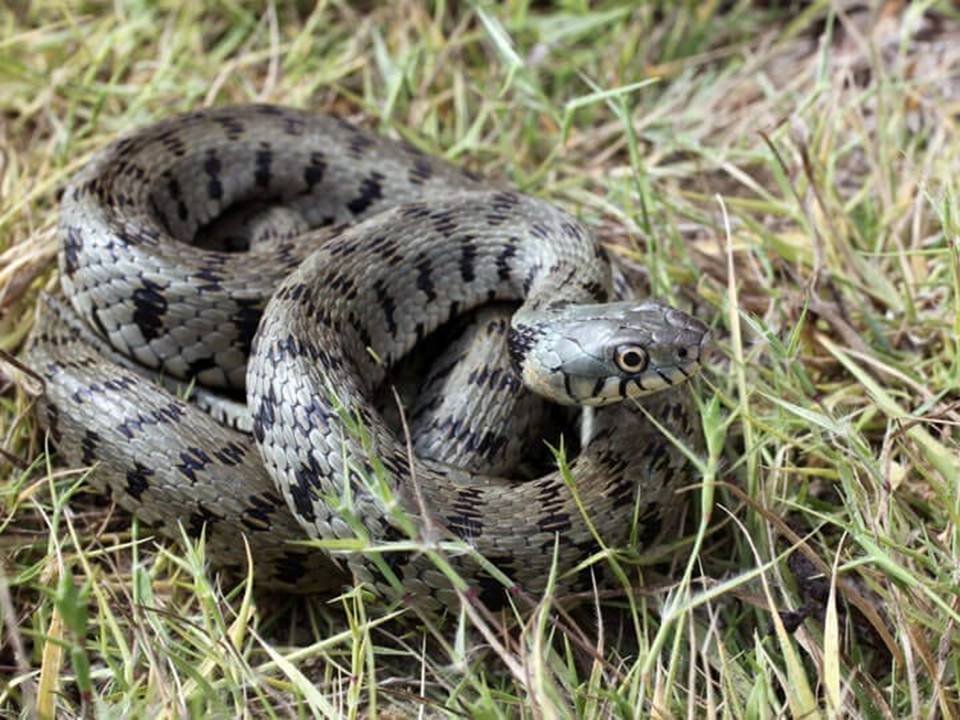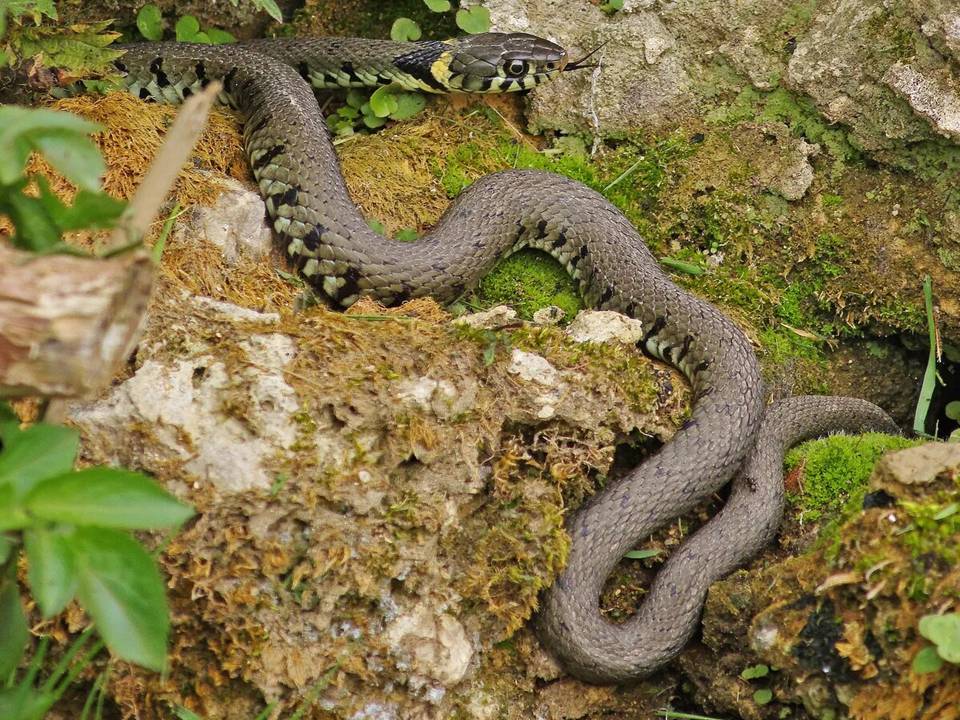A Snake Native to Cyprus
Cyprus Grass Sake, also known as Natrix Natrix, is a species of snake that is native to Cyprus. This snake is a non-venomous colubrid that is commonly found in grassy habitats, hence its common name.
The Cyprus Grass Sake is a slender snake with a length of up to 120 cm. It has a light brown or greyish colour with dark markings along its back. Its belly is usually lighter in colour, often with a yellow or cream hue. This snake has a distinct appearance, making it easily recognizable in its natural habitat.

Active During The Day
This species is primarily diurnal, meaning it is active during the day. It is often found basking in the sun or hunting for prey in grassy areas. Cyprus Grass Snakes are opportunistic hunters and feed on a variety of prey, including insects, small mammals, birds, and amphibians. They are also known to consume other reptiles, such as lizards and other snakes.

Breeding Occurs in The Spring,
During the breeding season, which typically occurs in the spring, male Cyprus Grass Sakes engage in combat to win over females. This involves intertwining their bodies and attempting to overpower each other. Once a male successfully courts a female, mating occurs, and the female will lay a clutch of eggs in a suitable nesting site. The eggs are then left to hatch on their own, and the female does not provide any parental care to the offspring.

Important Members of Their Ecosystems
Cyprus Grass Snakes are important members of their ecosystems as they help control populations of small mammals and insects. They also serve as prey for larger predators, such as birds of prey and other snakes. Despite being non-venomous, Cyprus Grass Snakes are known for their defensive behaviour when threatened. They may flatten their bodies, hiss, and strike if they feel threatened or cornered.

Threats Due to Habitat Loss and Fragmentation
In recent years, the population of Cyprus Grass Sakes has faced threats due to habitat loss and fragmentation. Human activities, such as urban development and agriculture, have encroached on their natural habitat, leading to a decline in their numbers. Additionally, road mortality has also been a significant factor in the decline of this species, as they are often killed by vehicles while crossing roads.
Conservation efforts are being made to protect the Cyprus Grass Sake and its habitat. This includes the establishment of protected areas and the implementation of measures to reduce road mortality. Education and outreach programs are also being conducted to raise awareness about the importance of conserving this species and its role in the ecosystem.
Plays a Crucial Role in Its Natural Habitat
Overall, the Cyprus Grass Sake is an important and fascinating species of snake that plays a crucial role in its natural habitat. Efforts to conserve this species are essential to ensure its survival for future generations to appreciate and enjoy. Through collective action and awareness, it is possible to protect the Cyprus Grass Sake and its habitat for years to come.


